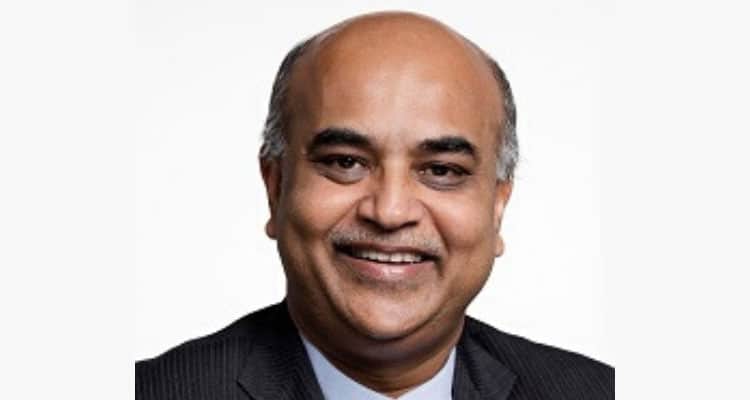Dr Shirshendu Mukherjee, Mission Director-Grand Challenges India, Biotechnology Industry Research Assistance Council (BIRAC), Department of Biotechnology explains to Viveka Roychowdhury how being Aatmanirbhar (self-reliant) in the biotechnology space gain more importance in the post pandemic era and highlights BIRAC’s vision for 2022
What have been BIRAC’s major achievements in helping the country deal with the COVID-19 pandemic in 2021? (In terms of lives saved, reduced imports, jobs created, etc)?
From a good year in 2019, the Indian bioeconomy faced the most difficult times in the past years. In 2020, the economy was boosted only by the good performance of biopharma and bioservices sectors. COVID-19 testing alone has added nearly $4 billion to the bioeconomy through vaccines and kits in 2020.
The home diagnostic kit from BIRAC supported Mylab has been able to reduce the load on regular pathology labs, saving cost of running and rerunning RT-PCR analysis in strained healthcare laboratories. Likewise, Dozee – offers contact-free monitoring of vital parameters of patients on a normal bed. This facility has enabled us to quantify 6000 nursing hours, and more than 70 potential lives saved with the continuous tracking system.
Development of COVID vaccines, diagnostics, point of care devices, PPE, N95 masks are all key achievements that enabled India to achieve 1.6 crore vaccinations in 1 year. Diagnosis/ genomic analysis/ reporting at such a large scale helped the country deal with COVID.
Which have been the most impactful Indian start-ups providing COVID-19 solutions that BIRAC helped bring to fruition since the pandemic started?
Some representative examples of BIRAC supported solutions include:
- Ubio Biotechnology Systems Pvt. Ltd.: provides Sensit COVID19 Rapid Antigen Test Kit. This Rapid Antigen tests is immunochromatography-based assay used for the rapid detection of antigen and antibody developed during COVID-19 infection.
- Huwel Lifesciences Pvt. Ltd.: provides Quantiplus Multiplex COVID-19 Detection Kit. This Real time Quantitative PCR Kit is based on a multiplex platform targeting the N & E genes. The kit also has a master mix required for the amplification of viral RNA.
- Accuster Technologies Pvt. Ltd.: provides a Portable Compact Mobile Lab on bikes. This Mobile Lab is basically a suitcase with a power backup and a pathology lab on a bike and uses a patented LED technology. It is specially designed to cater to challenges faced by the medical diagnostics fraternity in India’s remote and rural areas.
- Monitra Healthtech Pvt. Ltd.: came up with a technology – upbeat i.e., an ECG Patch Monitor. This solution helps clinicians diagnose two most difficult problems in clinical cardiology: unexplained fainting and palpitations. The device monitors heart rate, rhythm abnormalities and changes. It is redefining remote 24/7 continuous heart monitoring by bringing hospital grade sensing to homes.
How does being Aatmanirbhar (self-reliant) in the biotechnology space gain more importance in the post pandemic era?
Learnings from delay in manufacturing vaccines, development of indigenous vaccines and diagnostic kits due to non-availability of raw materials that are typically imported is a clear example of over dependence on imports. Similar observations were seen in early phase for anti-viral generic drugs, semi-conductors, sensors, moulds, zeolite for O2 concentrators etc. Being self-reliant during the pandemic improves the infrastructure in the healthcare system and helps in quick response towards patients.
How can we achieve a balance between self-reliance and global relevance, given that Indian start-ups could be relevant for other geographies and will need to tap global markets to achieve scale at some point in their life cycle?
Unmet needs that can be addressed by technology led solutions understand no boundaries. Today – India is importing about 70-80 per cent of medical devices and diagnostics due to non-availability. Likewise, India’s start-up solutions (if globally competent and relevant) have started penetrating international markets. This is only going to grow in future. BIRAC has been sending representative start-ups at global competitive forums, connecting global ecosystem through international collaborations, connecting, and expanding network of stakeholders including MNCs. Central ministry is also promoting such start-ups through DPIIT/ Ministry of Commerce, for India to become a global Innovation Hub.
There could be many socially relevant ideas that go against the profit-driven motives of most funders. While that makes it more important for government agencies like BIRAC to support such purpose driven start-ups that uplift society, what are the parameters based on which BIRAC provides funding to start-ups so that there is a business case even for socially relevant start-ups?
BIRAC does not differentiate between for profit and not for profit startup ventures. It extends support and provide opportunities to both types. Specifically, to promote grass root innovations, efforts like SITARE, EYUVA and SPARSH promotes such ventures. Participation of NGOs and philanthropic organisations with BIRAC is encouraged for this purpose. High visibility is also endeavoured through recognitions like the Hon’ble President/ VP/ Minister’s giving away annual awards in case of BIRAC SRISTI.
What is BIRAC’s vision for 2022 (give an overview but kindly focus on the pharma/biopharma and healthcare sectors)
Healthtech has gained recognition and prioritisation at national and international perspective post covid experience. Pharma/biopharma sectors are examples for developing first in class vaccines, scaling up manufacturing. Anti-viral drugs, monoclonal antibodies, biosimilars are expected to grow further. Allied technologies that can assist in manufacturing e.g., OmniBRx, startups, research – CROs, business decisions – KPOs all are complementing this effort. Addition of about 200 biotech startups can be expected in this domain in 2022. We at BIRAC are looking forward to Digital Healthtech Amrit Grand Challenge JanCARE launch to identify and support 75 innovations.
- Advertisement -


